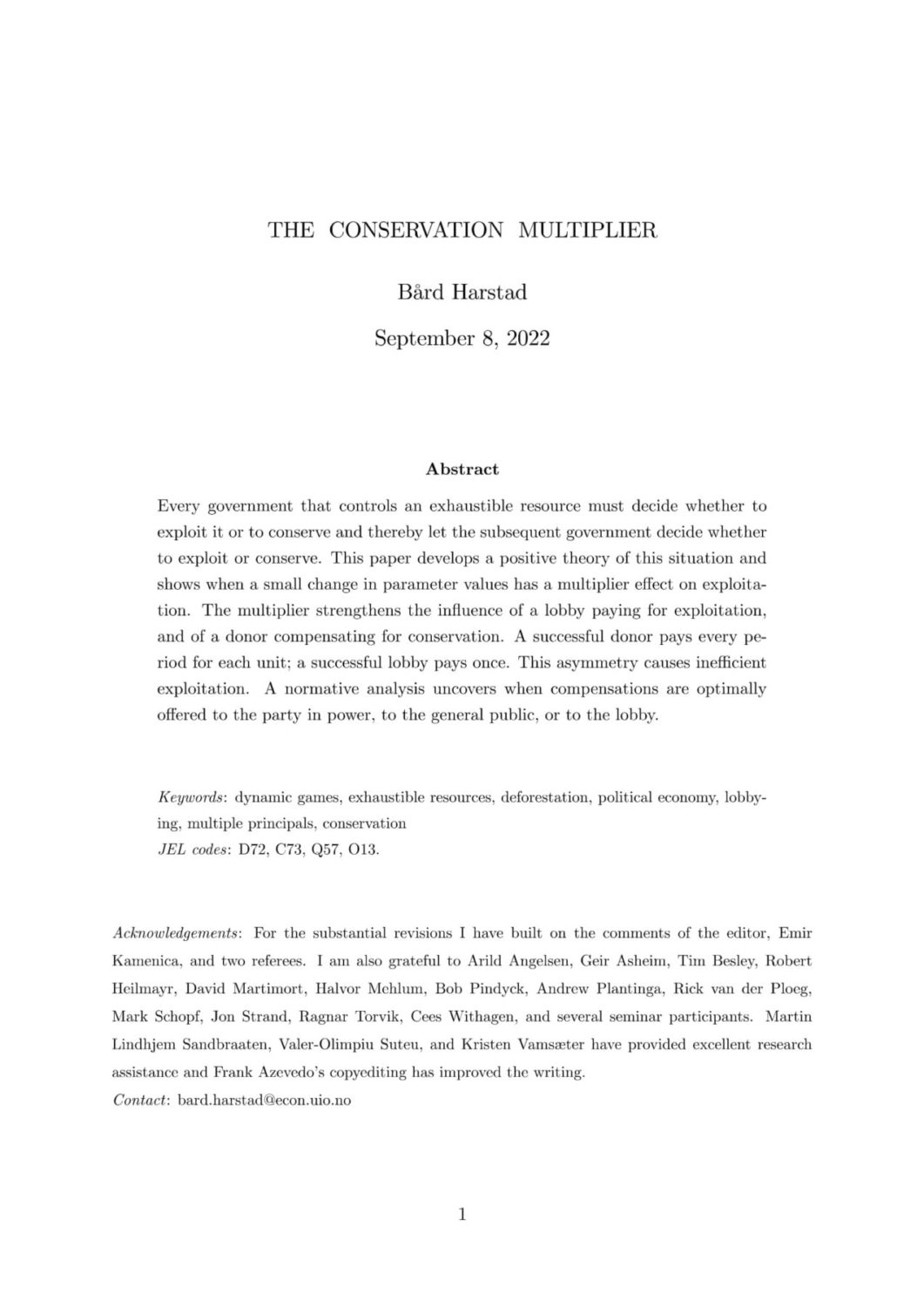The Conservation Multiplier
Bård Harstad (University of Oslo)
GPI Working Paper No. 13 - 2022, published in Journal of Political Economy
Every government that controls an exhaustible resource must decide whether to exploit it or to conserve and thereby let the subsequent government decide whether to exploit or conserve. This paper develops a positive theory of this situation and shows when a small change in parameter values has a multiplier effect on exploitation. The multiplier strengthens the influence of a lobby paying for exploitation, and of a donor compensating for conservation. A successful donor pays every period for each unit; a successful lobby pays once. This asymmetry causes inefficient exploitation. A normative analysis uncovers when compensations are optimally offered to the party in power, to the general public, or to the lobby.
Other working papers
Existential Risk and Growth – Philip Trammell (Global Priorities Institute and Department of Economics, University of Oxford) and Leopold Aschenbrenner
Technologies may pose existential risks to civilization. Though accelerating technological development may increase the risk of anthropogenic existential catastrophe per period in the short run, two considerations suggest that a sector-neutral acceleration decreases the risk that such a catastrophe ever occurs. First, acceleration decreases the time spent at each technology level. Second, since a richer society is willing to sacrifice more for safety, optimal policy can yield an “existential risk Kuznets curve”; acceleration…
Ethical Consumerism – Philip Trammell (Global Priorities Institute and Department of Economics, University of Oxford)
I study a static production economy in which consumers have not only preferences over their own consumption but also external, or “ethical”, preferences over the supply of each good. Though existing work on the implications of external preferences assumes price-taking, I show that ethical consumers generically prefer not to act even approximately as price-takers. I therefore introduce a near-Nash equilibrium concept that generalizes the near-Nash equilibria found in literature on strategic foundations of general equilibrium…
The asymmetry, uncertainty, and the long term – Teruji Thomas (Global Priorities Institute, Oxford University)
The Asymmetry is the view in population ethics that, while we ought to avoid creating additional bad lives, there is no requirement to create additional good ones. The question is how to embed this view in a complete normative theory, and in particular one that treats uncertainty in a plausible way. After reviewing…

